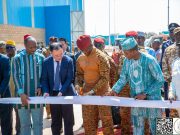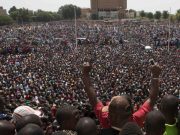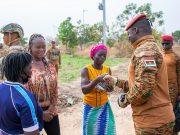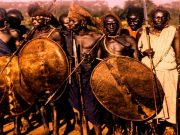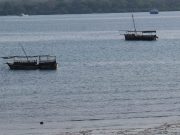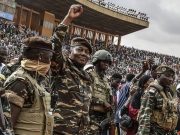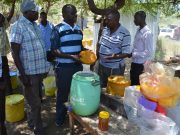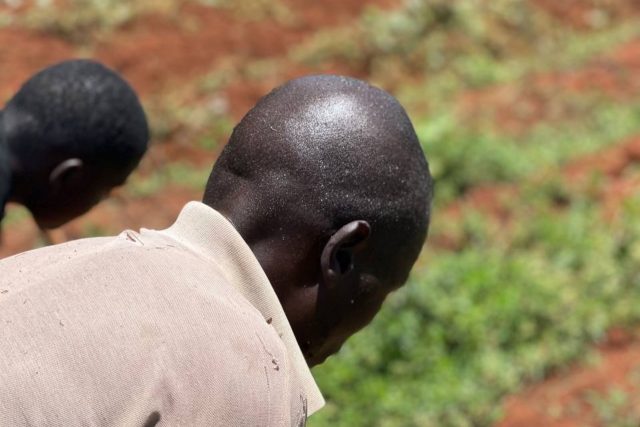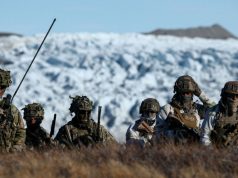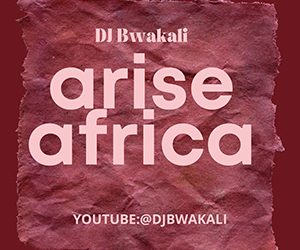We, the African People, are forming the African People’s Commission of Inquiry (APCI) on the Tanzania Massacre because the dead are being buried twice.
First, they were buried under live bullets, tear gas and state terror after the 29 October election. Then they were buried again under silence, denial and a state-led commission that dares to ask whether the youth were “paid” to protest, but refuses to name the thousands, who never came home.
This article is my public explanation, my founding statement, and my invitation to Africa to co-own this Commission.
1. Why a People’s Commission in Tanzania, and Why Now?
Since the 29 October election, Tanzanians have been living in fear. Opposition figures and human rights groups speak of thousands killed, with bodies disappearing into mass graves, overfull morgues and unmarked burials.
Families search for loved ones from Dar es Salaam to Mwanza. Some find them on cold concrete slabs. Others find nothing at all. The state has still not released an official death toll. Instead, the president launched a government Commission of Inquiry on 20 November 2025 that focused heavily on the claim that youth protesters were “paid” to destabilise the country, rather than squarely acknowledging and condemning the mass killings by security forces.
So we face a simple truth:
- The victims are real.
- The killers are largely known.
- The state is unwilling to tell the full story.
That is why the African People’s Commission of Inquiry on the Tanzania Massacre must rise. It is a response to three simultaneous crises:
- A crisis of truth: who was killed, where, how, and under whose orders?
- A crisis of dignity: the dead and the injured have become numbers, not names.
- A crisis of trust: the very institutions that should protect citizens are now accused of slaughtering them.
APCI will be victim-centred, pan-African and people-led. Its core purpose is to document and voice the plight of:
- Those who were killed,
- Those who were injured or tortured,
- Those who have been unfairly arrested,
- Those whose livelihoods and futures were destroyed.
It will be the voice of the voiceless, backed by African and global law, and inspired by global precedents of people’s tribunals when states refused to act.
2. When Governments Investigate Themselves: Four African Lessons
Africa is not short of commissions of inquiry. We are short of justice that follows.
a) Kenya’s Truth, Justice and Reconciliation Commission (TJRC)
Kenya’s TJRC was created after the 2007–08 post-election violence to investigate historical injustices and mass human rights violations since independence. It produced thousands of pages documenting land theft, ethnic massacres, political assassinations and economic marginalisation.
Yet key recommendations on prosecutions, reparations and land reform were largely ignored. Parts of the report were delayed or suppressed, especially the politically sensitive land chapter. Many perpetrators remained in power or were recycled through elections. The commission delivered truth on paper, but not justice in practice.
Lesson for Tanzania: if the state controls appointments, budget and implementation, a commission can expose horrors without changing the power structures that produced them.
b) Liberia’s Truth and Reconciliation Commission
Liberia’s TRC was tasked with confronting atrocities committed during the civil wars. It recommended elaborate vetting of public officials and even banning certain powerful figures from public office for their role in the conflict.
But the recommendations became politically inconvenient. The Supreme Court later ruled that mandatory implementation of parts of the report was unconstitutional, and political elites, including those named by the TRC, continued to dominate national politics. Implementation has been partial and slow, leaving many victims feeling used but not repaired.
Lesson for Tanzania: when political survival is at stake, governments will cherry-pick truth and bury accountability.
c) South Africa’s Marikana Commission of Inquiry
In 2012, South African police killed 34 striking mineworkers at Marikana. A commission chaired by Judge Farlam was set up to investigate. It uncovered serious failures in policing and labour relations, and it became a symbol of post-apartheid pain.
Yet more than a decade later, not a single senior official has been held criminally accountable for those killings. Amnesty International and South African commentators describe Marikana as proof of a “continued culture of impunity” in state violence.
Lesson for Tanzania: a commission that does not lead to prosecutions or systemic reform risks becoming a memorial to impunity, not a path out of it.
d) Tanzania’s Own Government Commission, 20 November 2025
The new government commission announced by President Samia Suluhu on 20 November is formally about “post-election unrest” and fringe issues like alleged paid protesters. She emphasised claims that youth were funded to destabilise the country, rather than explicitly acknowledging that security forces killed large numbers of unarmed civilians in their homes, streets and neighbourhoods.
Its public framing and political context suggest a familiar pattern:
- Focus on “unrest” rather than state violence.
- Investigate “paid protesters” who are the victims rather than security officers, who are the perpetrators and their chain of command.
- Promise “dialogue” while arresting opposition leaders plus multiple youth and charging them with treason.
Lesson for Tanzania: when a regime is accused of crimes against humanity, a commission it designs, funds and frames is structurally conflicted. Its first instinct is self-protection.
These four cases tell one story: state-led commissions often open wounds but do not clean them. APCI is being formed precisely to avoid repeating this cycle.
3. Standing on the Shoulders of People’s Tribunals Worldwide
APCI is not an isolated experiment. Around the world, citizens have created people’s tribunals when formal mechanisms failed.
Russell Tribunal on the Vietnam War
In 1966–67, philosophers Bertrand Russell and Jean-Paul Sartre convened the International War Crimes Tribunal, widely known as the Russell Tribunal, to examine U.S. conduct in the Vietnam War. It had no formal legal power, but it gathered witnesses, military testimonies and expert evidence to judge U.S. actions under international law.
Though dismissed by many governments, it shaped global public opinion, inspired later tribunals and proved that citizens can use the language of law to confront state crimes.
Permanent Peoples’ Tribunal (PPT)
The PPT, created in 1979 as a descendant of the Russell Tribunal, has held dozens of sessions on corporate abuses, genocide, and environmental crimes. Its sessions on European transnational corporations in Latin America and on fracking and climate change documented systemic human rights violations and issued detailed judgments that activists now use in advocacy and litigation.
The PPT has no police, but it gives affected communities a forum to testify, assemble evidence, and frame their struggle in legal and moral terms.
International People’s Tribunal on the 1965 Indonesian Massacres
The International People’s Tribunal on 1965 Crimes against Humanity in Indonesia was established in 2014 to address the mass killings of alleged communists and others in 1965–66. It derived its moral authority from victims and civil society, held hearings in The Hague, and concluded that the Indonesian state was responsible for crimes against humanity, possibly genocide, calling for reparations and official acknowledgment.
Again, no state handed it power. People did.
These examples teach us that people-led commissions can:
- create public, historical records where states deny;
- develop legal narratives that later inform courts and UN mechanisms;
- galvanise international solidarity and pressure.
APCI consciously steps into this tradition, but with a distinct pan-African mandate.
4. The Legal Roots of the African People’s Commission of Inquiry
APCI is not a mere moral gesture. It is rooted in multiple legal frameworks that recognise the right to life, the right to truth and the right of peoples to participate in seeking justice.
a) Tanzania’s Constitution
The Constitution of the United Republic of Tanzania guarantees:
- Equality and non-discrimination for all persons.
- The right to life and the right to personal freedom.
- The right to seek redress when constitutional rights are violated.
These provisions, read together, mean that when the state itself is accused of arbitrarily killing its citizens, Tanzanians and their allies have a constitutional basis to organise, document violations, and seek remedies through advocacy, courts and regional bodies. A people’s commission like APCI is an exercise of freedom of association, expression and petition in defence of these rights.
b) East African Community (EAC) Framework
The Treaty for the Establishment of the East African Community insists that the Community shall be people-centred and guided by principles of good governance, the rule of law and social justice.
By creating a regional, people-driven inquiry into mass killings that destabilise a Partner State, APCI aligns with the EAC’s own operational principles. Its findings can inform:
- petitions to the East African Court of Justice,
- advocacy before EAC organs that are mandated to promote human rights and stability.
c) African Union and African Charter on Human and Peoples’ Rights
The Constitutive Act of the African Union sets out principles that include:
- Participation of the African peoples in the activities of the Union (Article 4(c));
- The right of the Union to intervene in a Member State in grave circumstances such as war crimes and crimes against humanity (Article 4(h)).
The African Charter on Human and Peoples’ Rights affirms:
- The right to life and prohibition of arbitrary killing (Article 4);
- The right to dignity and protection from cruel treatment (Article 5);
- The right of peoples to peace and security, and to freely pursue their development.
When thousands of Africans are allegedly killed by their own state, a people’s commission documenting those acts is not outside African law; it is acting in defence of it, and it can feed evidence into AU bodies like the African Commission and African Court.
d) United Nations Victims’ and Human Rights Frameworks
The UN Declaration of Basic Principles of Justice for Victims of Crime and Abuse of Power states that victims should be treated with dignity, given access to justice, restitution, compensation and assistance.
UN guidance on commissions of inquiry recognises their role in investigating serious human rights violations and providing a factual basis for accountability.
APCI translates these principles into practical action when the primary duty-bearer, the Tanzanian state, is itself the main suspect.
5. What APCI Will Actually Do: Three Major Outputs
APCI will not be a talking shop. Its work will revolve around three core outputs.
1. A People’s Evidence Dossier
A rigorously documented, verifiable record of:
- victims killed or disappeared,
- survivors injured or tortured,
- patterns of attacks across time and geography,
- chain of command indicators and institutional responsibility.
This dossier will be designed so it can be submitted to:
- Tanzanian courts (when space opens),
- regional courts such as the East African Court of Justice,
- AU and UN human rights mechanisms,
- future international or hybrid tribunals.
2. A Public Victims’ Archive
A digital and, where possible, physical archive that names the victims, tells their stories, maps their communities and preserves testimonies. It will humanise the massacre for Tanzanians and the world, preventing erasure.
Families will not only mourn; they will see their loved ones inscribed in a shared African memory.
3. A Reparations and Justice Roadmap
A detailed policy blueprint that:
- outlines forms of reparation (financial compensation, memorialisation, psychosocial support);
- recommends legal and institutional reforms to prevent recurrence;
- proposes regional and international pressure points if the Tanzanian state continues to block accountability.
This roadmap will be offered to Tanzanian civil society, faith communities, regional bodies and sympathetic states as a practical agenda, not just a moral statement.
These three outputs tie directly into Tanzania’s long-term peace and justice journey. Without truth, there is no real reconciliation. Without a record, there is no basis for prosecutions or reparations. Without a roadmap, outrage fades into fatalism.
6. Limits of a People’s Commission – and Its Real Power
APCI will have real limitations:
- It cannot summon presidents, ministers or generals by legal force.
- It cannot compel access to state archives or military records.
- It cannot issue binding judgments or arrest warrants.
- Its commissioners and witnesses may face intimidation, digital attacks, or worse.
But like the Russell Tribunal, the Permanent Peoples’ Tribunal and the International People’s Tribunal on Indonesia, its power lies elsewhere.
APCI’s power will be:
- Evidentiary: gathering material that future courts and UN bodies can rely on.
- Moral: forcing Tanzania, Africa and the world to look at what happened.
- Political: raising the cost of denial for the regime plus its local and international partners.
- Symbolic: telling every African citizen that when states turn predator, people can still organise justice from below.
7. From Tanzania to Sudan and Congo: A Replicable Model
Tanzania is not alone. Sudan’s current war has killed tens of thousands, with atrocities in places like El Fasher. The Democratic Republic of Congo has endured decades of massacres, displacement and exploitation. Formal mechanisms, from UN missions to national commissions, have often been slow, selective or politicised.
An African People’s Commission model can be adapted:
- In Sudan, APCI-style work could focus on mass atrocities in specific states, working alongside Sudanese civil society to build dossiers for international prosecutions and regional pressure.
- In Congo, it could target long-ignored massacres tied to minerals and foreign-backed armed groups, documenting corporate complicity and feeding evidence into AU and UN processes.
The methodology remains the same:
- centre victims’ testimonies;
- anchor findings in regional and international law;
- build alliances with journalists, lawyers, faith communities and diaspora networks;
- treat every report not just as a document, but as a tool for mobilisation.
8. Designing APCI to Avoid the Failures of Past Commissions
From Kenya’s TJRC, Liberia’s TRC, South Africa’s Marikana Commission and now Tanzania’s state-led inquiry, we learn what not to do: underfund victims’ participation, let political elites define the mandate, keep findings in locked drawers, and avoid naming names
APCI will be built differently:
- Independence of composition: every African of goodwill who believes in true justice and real peace is a commissioner. You are the commissioner. The APCI does not belong to governments or elites. It belongs to the people. Its moral authority comes from ordinary Africans, from civil society, from faith communities, from survivors and their families, and from all who stand against state capture, imperialist violence and neocolonial sabotage. The Commission’s strength comes from this collective ownership. It is a pan-African chorus of conscience that no regime can dismiss or silence.
- Radical transparency: open publication of mandate, methodology, interim findings and final reports online, with translations into Kiswahili and other languages.
- Victim-first process design: psychosocial support, protection measures where possible, and clear consent protocols, grounded in best-practice guidelines on victims’ rights and redress.
- Clear implementation strategy: every recommendation will be tied to specific targets: which court, which UN mechanism, which AU organ, which regional body.
In short, APCI refuses to be an alibi for inaction. It is a weapon against collective amnesia.
9. Conclusion: Africa Must Name Its Dead, Protect its Living or Lose Its Soul
We are forming the African People’s Commission of Inquiry on the Tanzania Massacre because if we let this moment pass, we will teach every African ruler a deadly lesson: that you can slaughter your people, talk about “paid protesters,” set up a cosmetic commission, and wait for the world to move on.
Tanzania’s Constitution says every person has the right to life and equal protection of the law. The African Charter says no one may be arbitrarily deprived of life. The AU’s Constitutive Act speaks of the participation of African peoples and the right to intervene in the face of crimes against humanity. The UN Victims’ Declaration demands justice, truth and redress for victims of crime and abuse of power.
If states will not honour these words, then the people of Africa must.
APCI is one way of doing that: a pan-African mirror held up to power, a book of remembrance for Tanzania’s dead, a bridge to future courts and resolutions, and a prototype for Sudan, Congo and beyond.
We owe the victims not only our grief, but our organisation.
If you would like to be part of this historic initiative, contact us using the details below, stating how you would like to contribute: Your time and expertise; your cash; your prayers or just your moral support. If you are clear on exactly how you can help to actualize this People’s commission, please state so.
Email: africanawakeningshow@gmail.com



